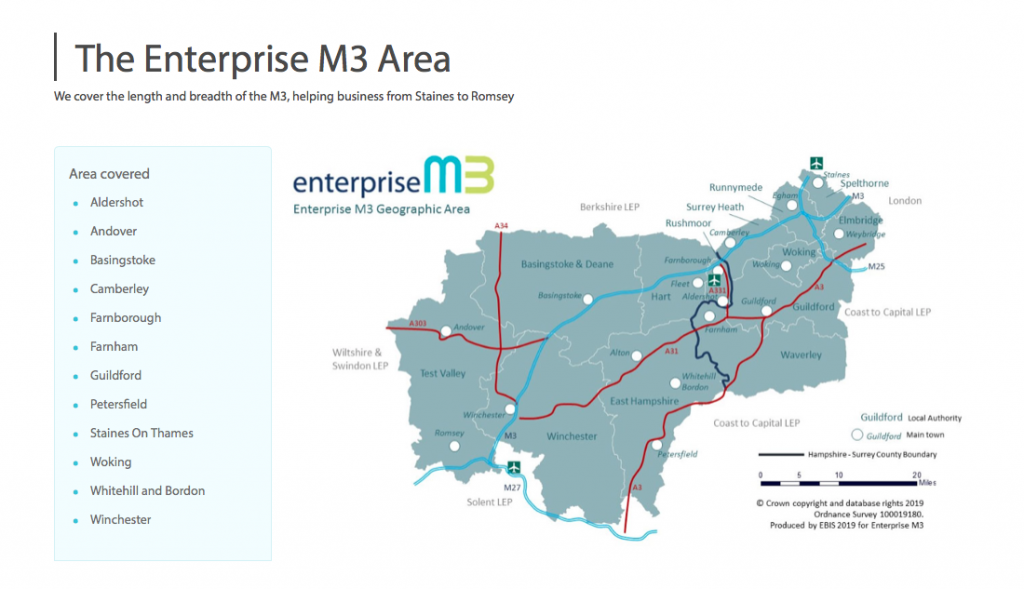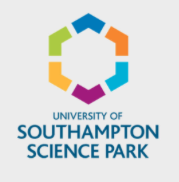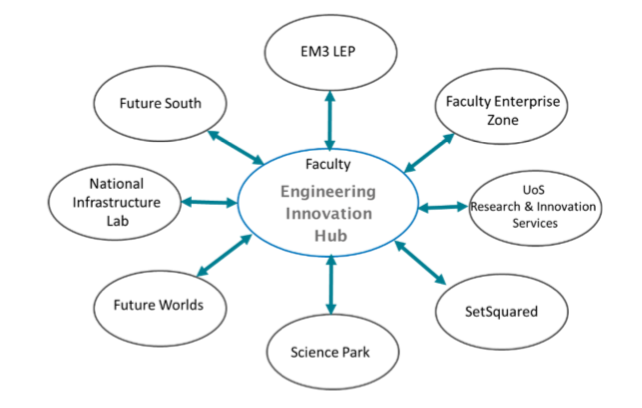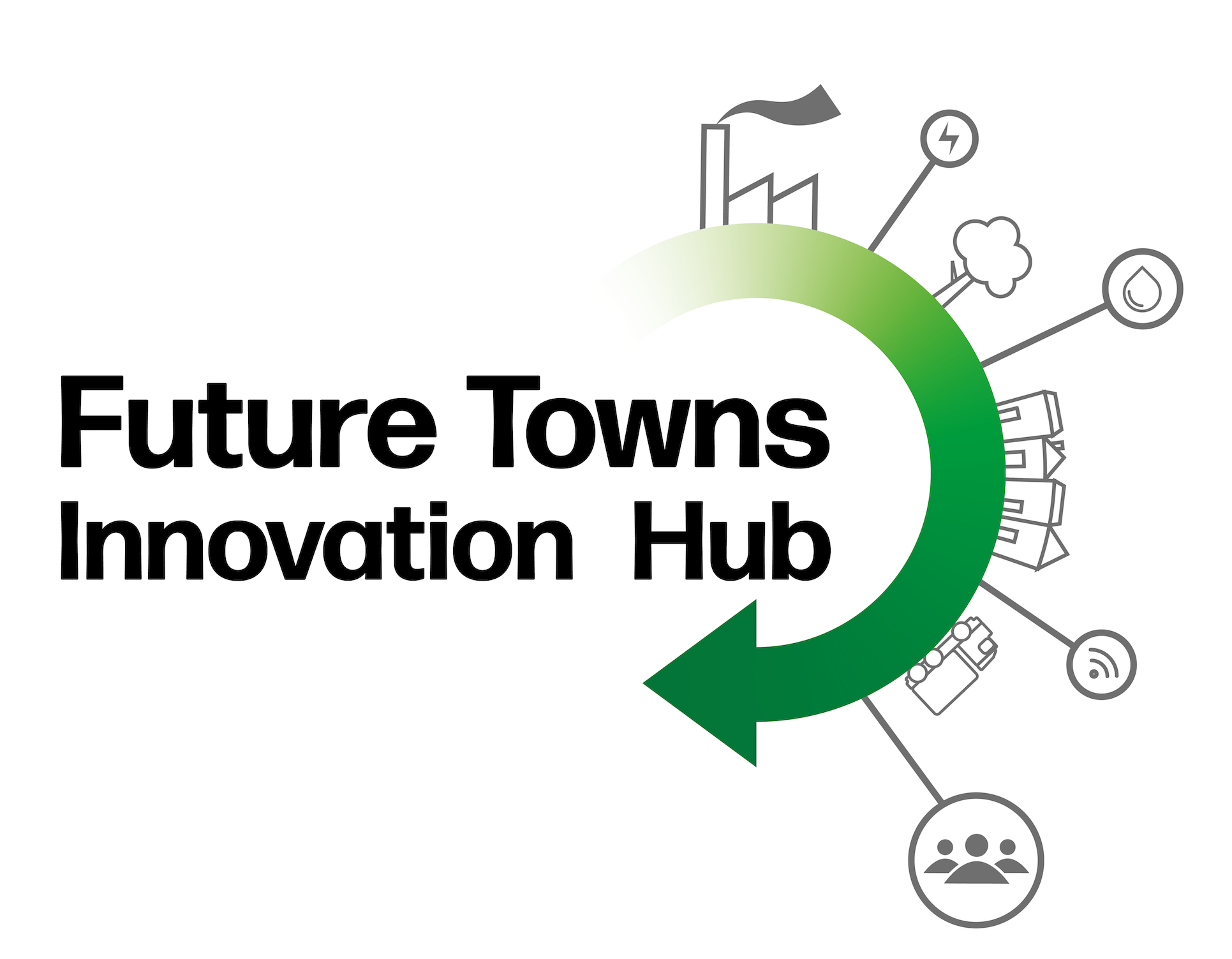The University of Southampton is recognised as being a global powerhouse in Engineering and Technology. Its largest unit, the Faculty of Engineering and Physical Science, includes the School of Engineering, the School of Electronics & Computer Science | University of Southampton, School of Chemistry | University of Southampton and School of Physics and Astronomy | University of Southampton. Of relevance to the Hub, the Faculty hosts a number of important institutes and research groups, including the Web Science Institute | University of Southampton, the University of Southampton – Aeronautics and Astronautics research group, the Transportation Group | University of Southampton, many Energy research groups Research | Energy at Southampton | University of Southampton, the Environment Group | Engineering | University of Southampton, The Zepler Institute | University of Southampton for Photonics and Nanoelectronics, and the new Sustainability and Resilience Institute (SRI) | University of Southampton.
The former Enterprise M3 LEP

The former Enterprise M3 LEP, which has now been incorporated into Hampshire and Surrey County Councils, helps to deliver increased productivity, prosperity and an improved quality of life for people living and working across our area.
A business led partnership, bringing together private, public and not-for-profit sector organisations to determine local economic priorities and undertake activities which drive economic growth and productivity through innovation, job creation, improved infrastructure and increased workforce skills within our area. These include small businesses, larger companies, local authorities, not-for-profit organisations, colleges and universities. They invest in transport, innovation, skills and enterprise, and their Strategic Economic Plan and emerging Local Industrial Strategy set out a vision for the future economy and plans to boost the productivity, prosperity and quality of life for the people and businesses who live and work in our region.


The Hub will be located at the heart of the University of Southampton Science Park, a major economic asset at the boundary of the Enterprise M3 and Solent LEP areas. It is home to 90 technology-based businesses, the activity of which extends up the M3 corridor and surrounds. The Science Park has a strong track-record in business growth, providing an ideal environment for this facility, and hosts world-class business creation, incubation and acceleration programmes. More recently, the Science Park’s Catalyst Programme has established a strong track-record of transitioning technology- based business ideas into successful early-stage commercial entities and enabling their rapid growth. Experience has shown that, with the stimulus of successful incubation, co-locating enterprising academics with commercially experienced entrepreneurs is a highly effective way of facilitating translation of research and exploitation of commercial opportunities.

Future Worlds is the on-campus start-up accelerator at the University of Southampton whose mission is to help the next generation of our aspiring founders change the world with their ideas. They inspire staff and students through engaging events, workshops and talks and help accelerate the development of ideas into successful start-ups through space, access to funding, and a network of mentors that includes millionaire investors, start-up founders and industry experts.

Research England – UKRI are responsible for funding and engaging with English higher education providers, to create and sustain the conditions for a healthy and dynamic research and knowledge exchange system in the higher education system.

